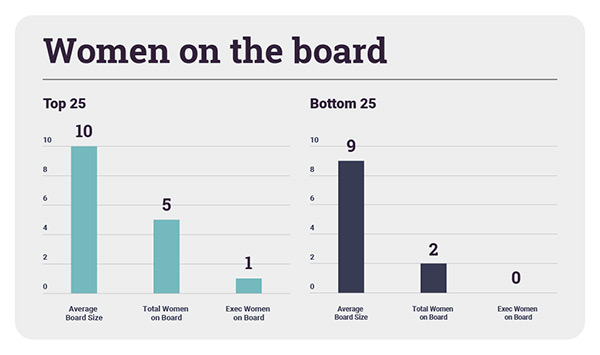SmallBusinessPrices.co.uk have created a leaderboard of UK companies that has the largest and smallest number of female members.
They did this by analysing publicly available data from The Financial Times Stock Exchange 100 Index (FTSE 100 Index) and The Financial Times Stock Exchange 250 Index (FTSE 250 Index).
Among the top 25 companies in the FTSE 100 for women in leadership positions were:
Among the bottom 25 companies in the FTSE 250 for women in leadership positions were:
The top 25 companies in the FTSE 100 Report that had a larger number of women on their board of directors scored higher in every category such as culture and values, diversity and inclusion, work-life balance and career opportunities than those in the bottom 25.
For example, the average score for culture and values for companies in the top 25 was 3.9 in comparison to 3.5 for companies in the bottom 25.
Additionally, the average score for career opportunities for companies in the top 25 was 3.6 compared to 3.3 for those in the bottom 25.
Finally, the average score for diversity and inclusion rating for companies in the top 25 was 4, this figure was 3.6 for those in the bottom 25.
The findings exploring women on the board and the gender pay gap from the piece are highlighted in the infographics below.


Overall, the data explored in the piece undoubtedly shows that companies with more women in leadership positions are more successful.
But it also shows that more needs to be done to get more women in leadership positions because both the top and bottom 25 companies in the FTSE had a ‘minus’ score for their gender pay gap.
Scott Ellyson, CEO of East West Manufacturing, brings decades of global manufacturing and supply chain leadership to the conversation. In this episode, he shares practical insights on scaling operations, navigating complexity, and building resilient manufacturing networks in an increasingly connected world.